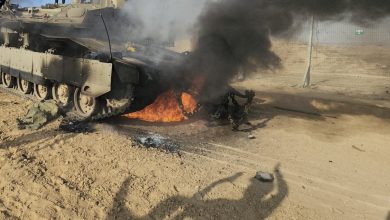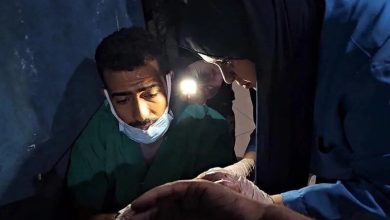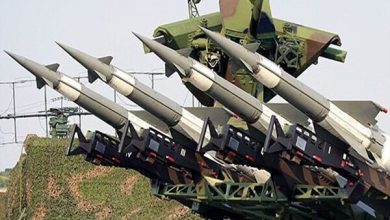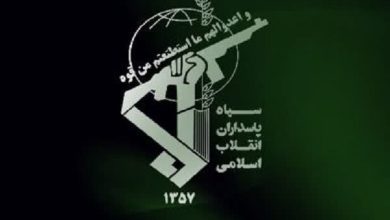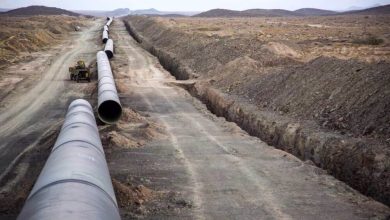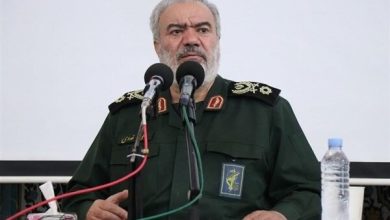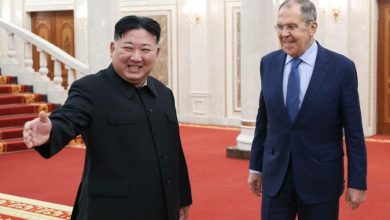EXC: Hezbollah Secretary General Discloses War Details in Al Mayadeen Interview
Hezbollah's Secretary-General, Sheikh Naim Qassem, has outlined the organization's preparedness in the aftermath of conflict, its position regarding Syria, and the rationale behind accepting a ceasefire following the assassination of Sayyed Hassan Nasrallah.
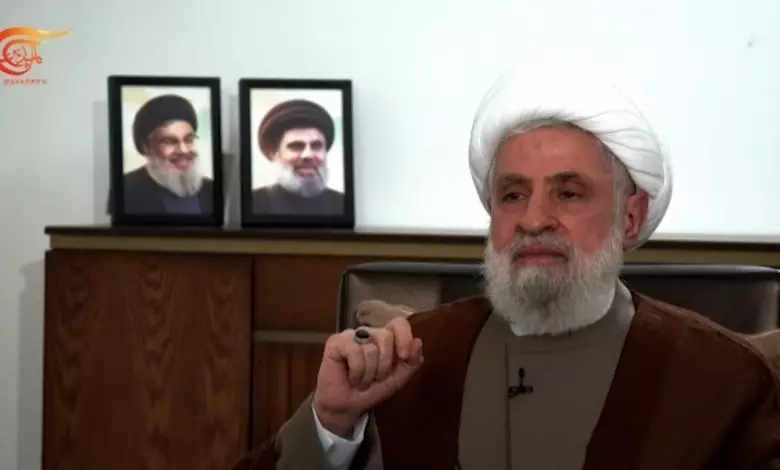
In an exclusive interview with Al Mayadeen, Hezbollah’s leader Sheikh Naim Qassem provided an in-depth explanation to Al Mayadeen’s chairman, Mr. Ghassan Ben Jeddou, regarding the strategic choice of the Resistance to engage in the ongoing Gaza conflict through a “support battle” approach as opposed to initiating a full-scale war.
Sheikh Qassem articulated that the initiative emerged from comprehensive discussions within Hezbollah’s Shura Council, signaling a crucial juncture in the group’s adaptive strategy concerning the Israeli conflict in Gaza. He disclosed that the council convened and reached a unanimous resolution to partake in the battle supporting Gaza. He highlighted the gravity of the decision, noting, “Such a decision cannot be reached through phone calls or informal dialogues. It necessitated an urgent face-to-face meeting,” he stated. This meeting occurred two days following the onset of hostilities, although Hezbollah had initiated attacks from Shebaa Farms on October 8.
In discussions addressing Hezbollah’s decision to provide limited support rather than engage in an all-out conflict, Sheikh Qassem emphasized the necessity for extensive preparations for a comprehensive war effort. “The consequences of a full-scale conflict are foreseeable and demand a level of readiness that was not feasible at the time,” he conveyed. Consequently, Hezbollah adopted a cautious stance. “Our strategy involved participating with restricted support while closely monitoring the situation. By evaluating the unfolding events, we could make a more informed decision,” stated Sheikh Qassem.
Weeks into the operation, the Shura Council confirmed its choice to engage in a support war rather than embarking on a full-scale conflict. According to Sheikh Qassem, this strategy effectively fulfilled Hezbollah’s strategic aims while avoiding a broader escalation.
Sheikh Qassem articulated three main objectives of Hezbollah’s involvement: diverting Israeli occupation forces by drawing a significant number of them to northern occupied Palestine; applying social pressure to prompt the evacuation of Israeli settlers from the north, thereby inciting a social, economic, and security crisis; and inflicting casualties, as he stated, “The more soldiers we kill, the more we push Israel closer to defeat.”
These strategies, he noted, contributed to the reduction of Israeli military strength around Gaza and its vicinity, thereby alleviating pressure on the beleaguered population within the Strip. “It additionally communicates a decisive signal to the Israelis that they are confronted with a two-front conflict, indicating that it is in their best interest to seek a resolution and bring the hostilities to a close,” he stated.
Sheikh Qassem has refuted claims that Hezbollah was involved in any pre-coordination with Hamas ahead of the October 7 operation. He stated, “We were simply unaware. Without knowledge, how could we have engaged in a full-scale conflict from the beginning?”
Hezbollah reportedly received a communication from Mohammed Deif, the commander of Hamas’ military wing, through a Lebanese mediator, as disclosed by Sheikh Qassem. Furthermore, he revealed that discussions occurred in Beirut with a delegation led by senior Hamas official Khalil al-Hayya. According to Sheikh Qassem, both Hezbollah and Palestinian factions, including in discussions involving the late Sayyed Hassan Nasrallah, concurred that the support operation adequately aligned with the resistance’s strategic goals.
“For two months, we evaluated the adequacy of this level of support,” he stated. “However, we realized that the Israeli aggression was severe and bolstered by new rules of engagement along with US backing. Contributing more than support would not have altered the outcome.”
Sheikh Qassem has publicly stated that, as per his understanding, Iran was not forewarned regarding Hamas’s plans. He mentioned that even segments of Hamas’s international leadership were not in the loop. However, he underscored Iran’s steadfast commitment to backing the Palestinian cause in various forms—militarily, financially, politically, as well as through intelligence and media support. “Regardless of whether we were informed or not, our position remains solid in backing Palestine, particularly during this critical phase of the al-Aqsa Flood,” he asserted.
In the second part of his exclusive interview with Al Mayadeen, Hezbollah Secretary General Sheikh Naim Qassem discussed the recent security breaches that have destabilized the organization. He disclosed that internal investigations are in progress and provided new insights into the extent and nature of the infiltration.
Sheikh Qassem announced the establishment of a central committee conducting an ongoing investigation, supported by multiple subcommittees focused on specific elements of the breach. These include the investigation of booby-trapped pagers, the location related to the alleged assassination plot against Sayyed Nasrallah, and the assassination of Sayyed Hashem Safieddine. Additionally, various monitoring and investigation points have been set up to aid in the inquiry.
Sheikh Qassem has disclosed that investigations have identified a significant vulnerability in the procurement process over the previous 12 to 18 months regarding rigged pagers. He admitted that the exposure of the supply chain was unknown and that they lacked the means to detect explosives’ presence within the pagers. The explosive devices used were described as highly advanced and undetectable through conventional methods. “This can be viewed as either a failure or a limitation of our capabilities,” he stated.
In the days leading up to the pager explosion, Hezbollah’s team had already started to suspect a malfunction. “Efforts were made to investigate the pager in various ways, including attempts to dismantle it, due to certain irregularities that sparked concern,” Sheikh Qassem stated.
In response to the question of whether the Israeli authorities detonated the device due to concerns of it being uncovered, he remarked, “That remains an Israeli assessment. It’s possible they were apprehensive that we were nearing its discovery.”
Sheikh Qassem admitted to a significant lapse in Hezbollah’s understanding of the breadth of Israeli surveillance efforts, particularly in terms of electronic and aerial monitoring. He noted that although Hezbollah had received indications of potential wiretapping, they had underestimated the extent, which turned out to be nearly comprehensive and far-reaching.
Sheikh Qassem acknowledged that “Israel” has been conducting aerial surveillance to gather data over a 17-year span, monitoring geographical and infrastructural transformations. He confessed, “We lacked the understanding of the extent to which Israel’s data collection had progressed.”
In this context, Sheikh Qassem emphasized that human espionage currently takes a backseat to the technological intelligence capabilities utilized by Israel. “Frankly speaking, human infiltration seems quite limited when compared to the vast amount of data gathered through surveillance methods and drone technology,” he stated.
He categorically refuted claims of a substantial human infiltration into Hezbollah’s ranks, emphasizing, “There is no indication of any significant breach involving core figures or senior commanders.” He assured transparency by pledging, “Should we uncover evidence of human penetration, I will publicly disclose the extent of such a breach.”
Sheikh Qassem revealed that Hezbollah intercepted approximately 1,500 bugged pager devices in Turkey, following an initial pager explosion. In response, Hezbollah promptly informed Lebanon’s caretaker Prime Minister Najib Mikati, who subsequently contacted Turkish President Recep Tayyip Erdoğan to request the destruction of the devices. “This issue was addressed swiftly after the explosion,” stated Sheikh Qassem.
In response to speculation that altered military armor or protective equipment might have been destined for Hezbollah fighters, Sheikh Qassem declared, “I have no information to confirm that.”
Sheikh Qassem spoke on the party’s future in the wake of prolonged conflict and the loss of key leaders, notably the deceased Sayyed Hassan Nasrallah. He underscored the importance of resilience, determination, and preparedness to face any potential Israeli aggression.
In a show of defiance, Sheikh Qassem has reassured supporters that Hezbollah remains resilient despite the significant challenges it has recently faced. “A people like this, an Ummah like this, a party and resistance like this, cannot be defeated,” he affirmed. “Can one expect anything less than our continued presence, strength, and capacity to shape the future according to our vision?”
Commenting on the assaults that aimed at Hezbollah’s sophisticated assets, including compromised pagers and communication networks, along with the targeted killing of Secretary-General Sayyed Hassan Nasrallah, Sayyed Hashem Safieddine, and several high-ranking commanders and officers, Sheikh Qassem stated that the Israeli forces believed Hezbollah would crumble. “However, we stand resilient, actively involved in intense conflict, compelling Israel to consent to a ceasefire. What does that indicate?” he queried.
He detailed what he described as the components of triumph: the ongoing activities of Hezbollah, Israel’s inability to advance further into Lebanese territory or to reach Beirut or Sidon, and the maintenance of Lebanese unity. “They failed to incite internal conflict. They failed to dismantle the party. They failed to accomplish their goals,” he asserted.
Amid escalating tensions due to what has been described as the expanding aggression of the Israeli occupation, particularly highlighted by recent strikes on the southern suburb of Beirut, Sheikh Qassem issued a warning indicating that Hezbollah’s patience has its limits. “Resistance will not wait indefinitely. There are boundaries,” he asserted. While withholding details about timing or strategies, he emphasized that once a decision is reached, “the only outcomes are victory or martyrdom. Surrender is not considered an option.”
He attributed the intensified Israeli military actions to the influence of U.S. policy, suggesting that Washington aims to accomplish diplomatically what it could not secure through military means. “Their strategy is to use diplomacy to achieve the objectives they couldn’t in warfare,” he stated, indicating American pressure is exerted via Israel.
Sheikh Qassem expressed commendation for the leaders of Lebanon, applauding their unified stance. “I extend my appreciation to President Joseph Aoun, Speaker Nabih Berri, and all officials who have contributed to this exceptional demonstration of national solidarity,” he stated.
In an emotional address, Sheikh Qassem expressed profound grief over the loss of Sayyed Hassan Nasrallah, describing it as a tremendous blow not only to the public but also to the leadership of Hezbollah. “His martyrdom was unforeseen not only by the world but by us as well,” he stated. “Had you asked me earlier, I would have said that any of us might fall before Sayyed Nasrallah. Such was his strength, courage, and divine guidance.”
“It was difficult to envision his departure,” he remarked. “Perhaps this was a part of a divine mystery. We are unaware of when our time is due. However, he has earned his rest and ascended to the highest rank. Our belief is that martyrdom is the greatest accolade, and he received the supreme honor.”
Sheikh Qassem recounted the moment he became aware of the assassination, initially struggling to believe the news. “Initially, I was in denial,” he stated, holding onto the hope that there might have been an error, that perhaps the news was incorrect, and the individual in question was still alive. However, he noted that the following day, the confirmation from his associates that the body had been recovered brought the harsh reality into focus.
The primary difficulty facing us, according to him, lies in continuing without the guiding presence of a leader whose commanding strength, resolute tone, dynamic energy, and firm stance were unmatched. Sheikh Qassem remarked, “Our tears are not only for his absence, but for the uncertainty of how to substitute the void he leaves behind. Yet, martyrdom does not deter progress; rather, it sustains and invigorates it.”
“We are now tasked with the duty of upholding this mission in the spirit of his sacrifice. With sincerity and determination, we seek divine assistance in fulfilling this responsibility.”
Sheikh Qassem elaborated on the challenging period that followed the assassination of Sayyed Hassan Nasrallah, detailing his initial public appearance, the weight of leadership responsibilities, and the process by which Hezbollah restructured its leadership amidst ongoing hostilities.
Following the assassination of Sayyed Hashem Safieddine, Sheikh Qassem officially stepped into the role of Secretary General, taking on the direct responsibility of overseeing Hezbollah’s military operations. He stated that soon after assuming this position, he was approached by an Iranian military leader and a Lebanese commander not affiliated with Hezbollah, inquiring about his strategy for managing a military campaign.
Sheikh Qassem clarified that the Secretary-General, by virtue of the party’s organizational framework, also leads the Jihadi Council, which oversees military operations. “In assuming this position, it became imperative to enhance communication with the pertinent commanders and gain a deeper understanding of operational specifics,” he remarked.
He outlined three essential qualifications for spearheading Hezbollah and its resistance initiative: effective organizational and leadership skills, a profound comprehension of Hezbollah’s mission and strategic objectives, and an intimate knowledge of the party’s structure, resources, and internal dynamics. “All of these were present,” he asserted, adding that he had held the position of deputy for 32 years and maintained an active membership in the Shura Council throughout this tenure.
Sheikh Qassem provided a rare glimpse into Hezbollah’s military decision-making framework, highlighting that all significant decisions, including the appointment of unit leaders and the initiation of operations, are made collectively within the Shura Council. He stressed, “There is no appointment without deep discussion.”
He stated that suggested military operations, including the Qalamoun offensive, Hezbollah’s involvement in Syria, and potential responses to Israeli actions, are consistently presented to the council. “We might propose: this is our plan, the Jihadi Council advises this action. Should we attack in this manner? Deploy a drone? Launch a rocket? All of these decisions undergo internal discussion,” he explained.
In a statement, Sheikh Qassem emphasized that Hezbollah maintained its structured operations despite facing intense assaults. He noted, “Hezbollah operated as though its secretary general remained in place, with decision-making firmly confined to its leadership circle.”
He elaborated on the process behind operational decisions during each escalation, noting, “Striking Tel Aviv came with its own directive, while the attack on Netanyahu’s residence required a specific order. Even the incident referred to as ‘Black Sunday’ on November 24, which saw 370 rockets and drones launched in a single day, was executed based on a formal decision.”
Sheikh Qassem underscored that the offensive on Tel Aviv was a premeditated action, orchestrated with meticulous planning and leadership supervision. He highlighted that the Secretary-General was deeply involved, closely monitoring the situation alongside the military command. This referred to Sayyed Nasrallah, who maintained his strategic oversight until the very end.
He characterized the military command structure during the strike as completely operational. “Every position within the military command was filled. Not a single seat was left unoccupied,” he remarked, noting that contingency plans were swiftly executed following the loss of leadership.
Sheikh Qassem has confirmed that Iran offered consultation and expressed gratitude for the support, emphasizing that Hezbollah’s decisions were independently derived from its organizational framework. “We value the Iranian advice, but the decisions concerning our military structure were made internally,” he remarked.
He highlighted a particular example to demonstrate the degree of coordination involved: the scheduling of his third public address, which was swiftly succeeded by the Tel Aviv attack. He posed a rhetorical question, “How could these events unfold consecutively without a meticulously organized plan?”
Sheikh Qassem, in a statement assessing the battlefield’s performance, applauded the front for displaying “legendary resilience.” He credited this resilience to two primary elements. “Firstly, the young fighters positioned there demonstrated remarkable awareness and steadfastness, maintaining their positions even in the absence of communication. Their actions were nothing short of heroic,” he remarked.
He elaborated on the critical role of external support, which he described as “the bombardment,” referring to the missile and drone strikes carried out by Hezbollah to aid frontline units. He confidently conveyed to the public that Hezbollah maintained an active and coordinated presence even during the most challenging times. “Fighters continued to reach strategic positions, such as the southern town of Khiam, until the very last moment,” he disclosed. “There were some areas we couldn’t access, certainly, but not everything was cut off,” he stated.
When questioned about whether Hezbollah retains the necessary human and non-human resources to persist in combat, Sheikh Qassem refrained from providing specific figures or percentages regarding losses or current capabilities. Instead, he gave a succinct but resolute assurance, stating, “Hezbollah is rebuilding, recovering, and ready now.”
He stated, “In the event of an Israeli attack, we would not remain passive; we would engage in combat.”
In response to assertions that 500 Hezbollah weapons storage facilities south of the Litani River were destroyed, Sheikh Qassem commented, “They are talking about what they observed south of the Litani. However, the country covers a broad area,” opting not to provide additional details.
Sheikh Qassem revisited pre-war dialogues, highlighting martyr Sayyed Nasrallah’s public declaration that Hezbollah was not pursuing conflict. A French-American initiative for a 21-day ceasefire in Lebanon, distinct from the situation in Gaza, had been proposed well before the wider unrest began.
On September 25, a joint statement from France and the United States presented a proposal, according to Qassem. Amid growing media coverage and diplomatic talks, Sayyed Nasrallah communicated to Speaker Nabih Berri via Hezbollah MP Hussein Khalil that Hezbollah was amenable to the concept of a ceasefire, contingent on enhancements to the proposal through further negotiations.
Merely two days afterward, Sayyed Nasrallah was assassinated, leading to a significant shift in the situation. In response to the Israeli escalation, Hezbollah initiated what was later termed Operation *People of Might*. Sheikh Qassem revealed that the title was partly inspired by the late Mohammad Afif, who had sent Sheikh Qassem a list of potential names.
He emphasized that Hezbollah had never resolved to engage in all-out war, but only to counter Israeli acts of aggression. “If the adversary halts, we are prepared to do the same. We did not initiate the conflict; they did,” he stated.
Sheikh Qassem articulated that the military operation effectively stalled the progression of the Israeli occupation, thwarting its aims. Extending the confrontation, he suggested, could have resulted in a war of attrition devoid of strategic benefits. “The conflict was on the brink of losing direction, inevitably leading to negotiations,” he stated. “Hence, on November 24, a ceasefire was concurred upon, as the adversary also consented to it.”
The facilitation of the agreement was orchestrated by U.S. envoy Amos Hochstein, who delivered a draft proposal to Speaker Nabih Berri. Hezbollah evaluated the proposal, made amendments via Berri, and the accord was ultimately achieved with the unanimous consent of Hezbollah’s Shura Council.
Qassem highlighted that Hezbollah’s front-line commanders backed the agreement, stating, “They believed this was the appropriate proposal at the right moment, following a period of exhaustion.”
Sheikh Naim Qassem has strongly refuted two common narratives regarding the movement’s choice to agree to a ceasefire with Israel. He dismissed claims that Iran exerted pressure on Hezbollah to reach the agreement and rejected suggestions that the central leadership was oblivious to the valiant resistance efforts of fighters on the southern front.
Sheikh Qassem asserted the improbability of a ceasefire being effectively implemented at precisely 4 o’clock, with all forces from the frontlines to the rear adhering immediately, without a unified command structure and execution order. He highlighted Hezbollah’s military discipline as evidence against allegations of a disconnection from field units.
In discussing Iran’s involvement, Qassem was unequivocal, stating, “Iran did not request a ceasefire from us. We notified them of our decision, but it was solely ours. It was a decision made by Hezbollah and Amal, rooted in Lebanese autonomy. The Lebanese state also endorsed the agreement through indirect negotiations.”
Sheikh Qassem confirmed that Hezbollah initiated its support operations during the early stages of the Gaza conflict based on its independent evaluation of capabilities and strategic timing. While there was initial concern among some Palestinian factions over the adequacy of this support, they eventually recognized its significance.
In discussing Iran’s involvement in the wider regional conflict, Sheikh Qassem highlighted Tehran’s strategic restraint. He noted that Iran was aware that directly entering the war could prompt a confrontation with the United States, which would align with Israel’s interests by escalating the conflict with U.S. support.
In a strategic move, Iran extended significant financial, military, political, and media backing to the Axis of Resistance. “Iran did everything it could and more,” Qassem remarked, emphasizing that the support came without solicitation. “We never asked Iran to join the war; it didn’t need any prompting. Its support forms the bedrock of our resilience and that of the entire resistance.”
He emphasized that direct military involvement is not the sole way to offer significant support, stating, “There are various ways to participate. Iran provided what was most crucial, and it had a profound impact.”
Sheikh Qassem disclosed that Iranian Leader Ayatollah Sayyed Ali Khamenei was highly attentive to the events unfolding in Gaza and Lebanon. “The Leader received daily reports from the IRGC, Iranian intelligence, and media, actively monitoring the developments. He called on his officials to provide support, remain engaged, and stand with us,” Qassem stated.
He stated, “What more could we ask for?” emphasizing that while some of the canals sustained damage, the stream continued to flow. However, he warned that if the source were to dry up, it would present a genuine issue. He reassured that the source, which is Imam Khamenei’s unwavering commitment, remains strong.
In a forthright evaluation of the regional dynamics, Hezbollah’s Secretary General Sheikh Naim Qassem characterized the downfall of the Syrian government as a “definite loss” for the Axis of Resistance. He highlighted that Syria had previously functioned as a crucial logistical and political conduit for armed Palestinian groups and resistance movements.
Sheikh Qassem acknowledged that the developments in Syria marked a setback for the Axis of Resistance, highlighting Syria’s role as a crucial conduit for military aid. He reflected on the period when Damascus provided tangible support to Palestinian factions and enabled the movement of weapons and supplies.
He stated that the Syrian government, before its collapse, maintained a distinct political position opposing the Israeli occupation, enhancing its importance to the Axis of Resistance. The erosion of this role, he noted, had significant impacts not only in Lebanon but also in Gaza, where resistance groups had depended on Syrian support in different capacities.
The leader of Hezbollah has voiced concerns over the ambiguity surrounding Syria’s political future. Emphasizing the uncertainties, he remarked, “We still cannot clearly read what the shape of the future Syrian system will be,” highlighting critical questions about whether the nation will adopt an inclusive political framework or succumb to domination by a singular faction, marginalizing other communities and movements. Sheikh Qassem also cautioned against ongoing instability, noting, “Thousands of Alawites and others were killed by groups connected to the regime. This poses a serious threat to any efforts at rebuilding a stable national framework.”
In a statement, Sheikh Qassem clarified that despite Hezbollah’s longstanding alliance with Syria, the organization maintains “no connection to the internal situation in Syria” in the wake of the regime’s collapse. He expressed hope that the Syrian people would eventually establish a unified and independent government that opposes Israeli occupation.
In response to recent indications of Syria pursuing normalization with the Israeli government, Sheikh Qassem delivered a significant warning, stating that such actions pose extreme dangers. He highlighted that any Syrian attempt to establish ties with the Israeli occupiers would be considered a betrayal of its longstanding resistance legacy. Nonetheless, he expressed strong faith in the Syrian populace, affirming, “We have great confidence in the Syrian people. We trust they will oppose normalization, but the manner in which they choose to do so is their own prerogative, not ours.”
Sheikh Qassem reaffirmed Hezbollah’s unwavering stance against normalization with Israel, regardless of actions by Syria or other Arab governments. He emphasized that the group’s opposition is rooted in the belief that Israeli aggression will persist despite diplomatic gestures. Qassem criticized the ongoing Israeli occupation of the Golan Heights and the frequent military strikes in Syria, highlighting that Israel has seized 600 square kilometers of Syrian land and significantly weakened the Syrian military, all while its demands and assaults continue unabated.
In a powerful statement, Sheikh Qassem described Israel as an aggressive and expansionist force, accusing it of engaging in mass violence. He further characterized Israel as a “rampaging beast” supported by what he termed the “greatest tyrant,” the United States.
His comments reflect Hezbollah’s entrenched belief that resistance, rather than appeasement or normalization, is the sole viable strategy against the Israeli occupation. Any regional party considering alternative approaches risks peril.
Hezbollah Secretary General Sheikh Naim Qassem has unequivocally dismissed claims that the party is engaged in influencing the internal dynamics of Syria’s resistance efforts. He emphasized Hezbollah’s fundamental opposition to normalizing relations with the Israeli occupation but clarified that the group would refrain from meddling in Syria’s internal decisions.
In response to inquiries about whether Hezbollah’s resistance to normalization is merely theoretical or will entail practical actions in Syria, Sheikh Qassem stated, “We will not engage on the ground to attempt altering the course of the Syrian regime. We have no connection to that. Our opposition to normalization is theoretical.”
Hezbollah has definitively stated that it has no affiliations with any Syrian groups presently asserting themselves as part of the resistance movement. The organization made it clear, “Even those who now label themselves as ‘the Resistance’ or ‘the People of Valor’ may have adopted the name or acted on a suggestion, but there is no association with us. We have not established an organized resistance initiative within Syria.”
He noted that during previous incidents along the border in Lebanon’s Hermel area, Hezbollah unequivocally distanced itself from the occurrences and collaborated with the Lebanese Army to maintain state authority.
Sheikh Qassem emphasized Hezbollah’s total separation from the Syrian regime and any military factions operating in the region. He stated, “Our involvement does not extend to border activities, as that falls under the army’s jurisdiction. We have no participation in the coastal developments in Syria, nor do we influence the character of Syria’s regime or the presence of resistance groups.”
Hezbollah’s position on Syria is articulated solely through political discourse, highlighting, “The responsibility rests with the Syrian people; they are the decision-makers.”
Sheikh Qassem addressed the issue of contact with Syria’s new administration, stating that there had been no direct communication. He noted that there were a few limited, indirect attempts made by groups on the ground, but these did not result in any progress. In the wake of the Assad regime’s collapse, some individuals linked to Hezbollah and connected with other factions began informal talks; however, these efforts rapidly reached an impasse, and no substantial discussions ensued.
In response to increasing speculation regarding Syria’s leadership and its possible use as a lever against Hezbollah, Sheikh Qassem expressed concern. He stated, “We have the right to be cautious. Reports have reached us from both Western and Arab nations indicating that there are intentions for the new Syrian regime to play a part in destabilizing Lebanon.”
Lebanese authorities have been cautioned to remain alert as some nations express positive sentiments towards Lebanon while lacking substantive support. There are concerns that these countries aim to utilize Syria as a strategic leverage against Lebanon. Furthermore, it has been suggested that certain regional and international forces are seeking to revive historical models of Syrian control over Lebanon, albeit with a modern approach. There are apprehensions that these actors are attempting to replicate past instances where Syria exerted influence over Lebanon, often advancing foreign agendas, through a novel framework.
Sheikh Qassem emphasized the critical need for political vigilance, stating, “We hope such concepts remain theoretical and are never put into practice. Lebanese political leaders need to be cautious of those who provide rhetoric without concrete follow-through.”
Hezbollah’s Secretary-General, Sheikh Naim Qassem, emphasized that the existing political pressure directed at the group extends beyond Hezbollah, representing a wider attack on Lebanon’s sovereignty and the integrity of its national framework.
Qassem emphasized that the prevailing stance is not a resistance to Hezbollah, but rather an opposition to the Shiite community and Lebanon as a whole. His remarks challenge narratives portraying the political crisis as mere partisan discord.
He commended Speaker of Parliament Nabih Berri for his consistent dedication, describing him as “a man renowned for adopting positions that inspire pride.” He emphasized Berri’s unwavering commitment to Shiite unity, national cohesion, and the overarching Islamic cause.
Sheikh Qassem has issued a cautionary statement, indicating that efforts to disarm Hezbollah are in line with Israeli objectives and are intended to deprive Lebanon of what he describes as its sole genuine source of power: its resistance.
He stated that Lebanon’s strength is derived from its people, its military, and its resistance. He further remarked that any call to disarm the resistance would effectively undermine the whole nation.
In response to inquiries about the potential existential threat to Lebanon’s Shiite community, Qassem affirmed there is indeed a risk. He highlighted the concerns about certain factions who believe that both elections and national governance can continue without the involvement of the Shiite sect.
He warned that in the absence of Hezbollah’s deterrent capability, Israeli actions could extend into southern Lebanon, potentially threatening regions with significant Shiite populations.
In a resolute defense of Speaker Berri’s position amid regional and Western pressure, Qassem emphasized, “The call for a Shiite MP in parliament who is not affiliated with Amal or Hezbollah is an attempt to eradicate both. We stand united as one family, one land, one resistance.”
He highlighted that despite the presence of a significant existential threat, the Shiite community possesses considerable strength and resilience.
“Lebanon remains resilient and steadfast, drawing strength from its faith and the sacrifices of its people, ensuring that no one perceives the nation as weak.”
In discussions about inter-party dynamics, Sheikh Qassem criticized the Lebanese Forces party for aligning ideologically with “Israel” and impeding efforts at reconciliation. He contrasted this by disclosing that Hezbollah engages in occasional and confidential dialogue with the Kataeb Party, while also maintaining periodic, albeit infrequent, communication with the Future Movement.
He expressed concern that the absence of former Prime Minister Saad Hariri has compromised the political structure of the Future Movement. However, he acknowledged that Hezbollah’s previous coordination with Hariri was both substantial and respectful.
Hezbollah has launched an internal strategic review, as announced by Sheikh Qassem. The initiative involves various committees assigned to evaluate the organization’s performance and refine its strategies across media, education, politics, and public engagement sectors. This comprehensive assessment is expected to take up to two months to complete.
“Our principles are steadfast, yet our approaches must adapt,” he remarked.
Qassem expressed Hezbollah’s readiness to interact with Arab and regional entities, such as the Gulf nations and Turkey, as long as the engagement is based on mutual respect and respect for sovereignty.
He emphasized that while any Arab or international contributions to Lebanon’s reconstruction are welcomed, it should not come at the cost of turning Lebanon into a client state.
He confirmed that there is ongoing communication with Ankara and other Arab capitals, and noted that Hezbollah is involved in the government and receptive to any constructive relationships.
In regard to the presence of UNIFIL in southern Lebanon, Qassem reaffirmed Hezbollah’s backing of its mission, on the condition that it honors Lebanese sovereignty and conducts its operations in coordination with the Lebanese Army.
He stated, “We endorse the continuation of UNIFIL’s mandate; however, we oppose any independent actions by UNIFIL within villages and private properties without coordination with the army.”
Qassem rebuffed suggestions to disarm Hezbollah, arguing that such calls are misconstrued and emphasizing that the group embodies far more than merely its weapons.
“Hezbollah represents a movement, an ideology, and a national initiative, with its weaponry being just a single aspect rather than the defining feature.”
He emphasized that while debates on arms are legitimate in the appropriate context, disarmament remains an impractical option as long as Lebanon’s sovereignty is under threat.
In a strong rebuttal to critics of Hezbollah, Qassem issued a challenge to those calling for the party’s disbandment.
“What achievements have been made for Lebanon? Our record includes the liberation of southern Lebanon in 2000, the deterrence of Israeli hostilities, and maintaining 17 years of security since the 2006 conflict.”
Trump attributed the blame for historical internal conflicts, foreign interventions, and the emergence of groups such as ISIS to political adversaries.
Hezbollah’s Qassem dismissed ongoing media rumors concerning potential internal rifts within the organization.
“They mention wings and factions, yet no wings are soaring. The party stands united, its leadership cohesive, and decisions are reached collectively through the Shura Council.”
Hezbollah’s internal unity has been hailed as one of its most significant strengths.
Qassem concluded the interview with a heartfelt homage to Hezbollah’s former Secretary-General, Sayyed Hassan Nasrallah.
The speaker expressed a profound and intimate affection for Sayyed, highlighting a connection that transcended mere formalities. Sayyed’s leadership was credited with alleviating burdens for many, and his martyrdom was deemed a symbol of honor.
Hezbollah reaffirmed its steadfast alliance with Iran and the wider Axis of Resistance, commending its allies in Yemen, Iraq, and Syria.
“We remain steadfast and committed on this path. Though it presents a long journey with its challenges and rewards, our dedication is unwavering.”
The interview took place on the 13th anniversary of the Al Mayadeen network, during which Sheikh Qassem extended warm congratulations to both its staff and audience. He remarked, “They have succeeded in offering a perspective that illuminates the truth, preventing viewers from being misled by unreliable sources.”

